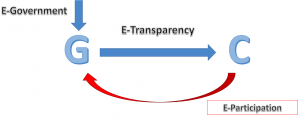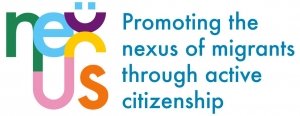(*The MOOC finished in June 2021, but the course will be left as an open educational resource with open registration but the forum has been blocked since the course has no tutoring support. In addition, it is not possible to obtain a certificate as the collaborative and reflective activities will be closed and therefore cannot be assessed, but you can access all the material and self-assessment exercises).
NEXUS aims at innovating the civic educational process resulting in increased participation of students in their communities. As part of this innovation, a MOOC on Civic Education (Civics 4.0: active citizenship and participation in the digital age) has been developed, focusing on Civic education micro-learning units. Subsequently, a knowledge-sharing platform (building on open educational resources and practices) for civic educators has been created.
The MOOC targets students from diverse backgrounds, such as migrants, who are interested in digital civic education and digital participation by empowering them with skills and knowledge for democratic citizenship and active participation in society. Newly-arrived migrant students are a vulnerable group that faces exclusion from political and social participation in a new community. Becoming actively involved in the host country’s society is a key element in migrant integration. By making their voices heard, taking an interest in how society works, and participating in the decisions that shape its future, immigrants show that they are an integral part of their new country – the very objective of integration.
The MOOC focuses, among other topics, on e-Democracy, such as the use of civic technology to support democratic decision-making processes:
 (Elisa Lironi, ECAS)
(Elisa Lironi, ECAS)
The MOOC is available both from UNED Abierta and UNIMED Learn Space.
Transferability and Impact
Transferability: the MOOC offers micro-learning units for teachers and students that can be accessed by anyone with the interest in the topic. Recent influx of migrants into Europe resulted in a majority of European HEIs that now have student population who either personally or through family are excluded from broader civic or political membership in some way.
Impact: Most HEIs are still-notably lacking in requirements that focus directly on issues of contemporary European civic life and democracy: the central role of information and the mass media, the possible causes of declining civic engagement and declining trust in government, and so on. By offering this civic education learning opportunity for both students and teachers, we expect to raise their interest in civic engagement and initiate discussion on the necessity of community service student-projects for building resilient societies.
NEXUS4Civics Community
This space is a sharing platform for a learning community of educators and students with diverse backgrounds and interests in active citizenship and participation in the digital age.
On this platform, you can find a collection of resources created by the NEXUS team or shared by the project community, related to a variety of topics such as digital civic engagement, digital identity, digital footprint and online privacy, public policy, monitoring, accountability and transparency, advocacy, online campaigning, smart city and smart communities, community engagement and service learning in higher education, and civic-tech tools for engagement in the digital age.


